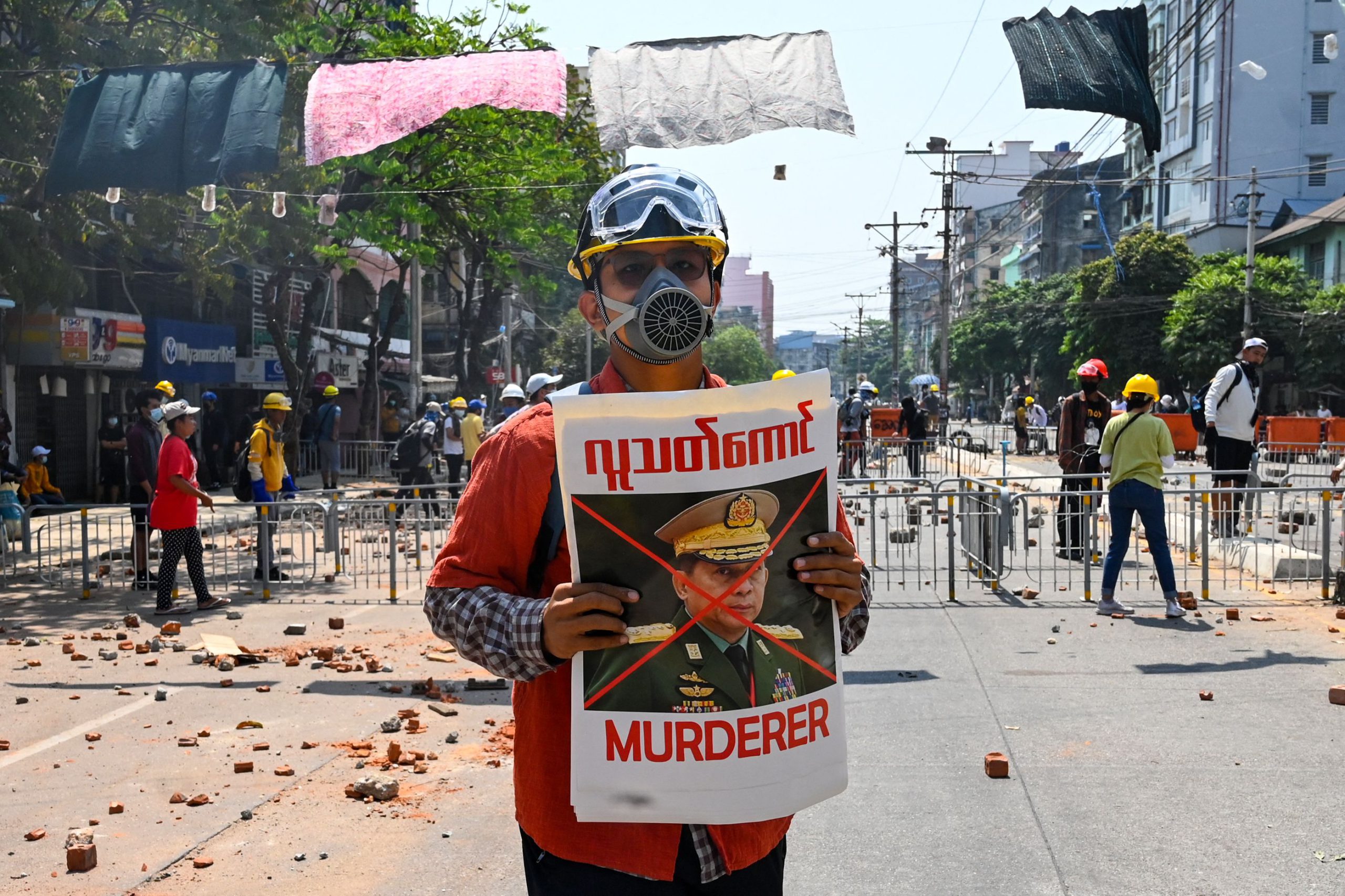
As Myanmar’s crisis deepens, wrought by the double devastation of the military coup and the Covid-19 pandemic, now more than ever we need safe and secure ways to communicate.
For independent media outlets like Myanmar Now—forced to operate in secrecy following the military’s sustained attack on journalism—mobile operators that collude with the junta can lead to prison sentences or worse for our reporters and others. Our fear is not only of the military’s abilities to intercept calls and access metadata, but also to track users’ locations through their phones, putting them at risk of becoming physical targets of the junta’s unrelenting terror.
It therefore came as a shock when Telenor—to many, the country’s most trusted mobile operator—announced the hasty sale of its Myanmar operations to Lebanon’s M1 Group, a company owned by billionaires with a history of doing business with dictatorships, including Bashar Al-Assad’s brutal regime in Syria.
One of the group’s founding members, Najib Mikati, has been charged with corruption in his home country, raising further questions about the company’s integrity. We have little reason to trust M1 Group to uphold human rights or to operate without corruption.
Telenor has not been transparent regarding its deal with M1 Group. The company has not provided details of how it assessed M1 Group and subsequently determined them to be a responsible buyer of its operations.
Furthermore, there has been no indication of meaningful engagement by the Telenor Group with major Telenor Myanmar stakeholders regarding the sale, including the country’s independent media, civil society, or customer base.
The company’s hurried and shadowy exit contrasts with the wide consultations Telenor publicised at the time of its market entry in 2014 under ex-general President Thein Sein’s government. This flurry of controversial Norwegian engagement included a royal visit to Myanmar, major financing of the peace process, and the wider pursuit of investment.
The line between diplomacy and economic interests has often been a blurry one for foreign countries working in Myanmar, including Norway. Norway’s ex-ambassador to Myanmar Katja Nordgaard was appointed as an executive vice president at Telenor in the same year the company entered Myanmar’s market. In her capacity as ambassador in 2012, she had joined Telenor executives at meetings with the government in Naypyitaw.
Telenor’s entrance to the country was lauded by some as symbolic of Myanmar’s opening and condemned by others as a “reward” for Norway’s engagement with the repressive and undemocratic administration in power at the time.
“Now we see an ambassador who played a key role in reversing Norway’s policy of prioritising human rights also reaping the financial benefits of cosying up to the Burmese government,” Mark Farmaner, Director of Burma Campaign UK, said in 2014.
Telenor, in turn, has maintained that it is committed to respecting human rights.
These rights credentials were challenged following genocidal military operations against the Rohingya population of Rakhine State in August 2017. Eyewitnesses reported that a telecommunications tower leased to Telenor was used by Myanmar army soldiers as a sniper post from which to shoot fleeing Rohingya villagers in Alethankyaw, Maungdaw Township; the bodies of many of these civilians are allegedly buried underneath it.
Telenor responded that it was “deeply concerned by the alleged crimes” and would begin a “dialogue with relevant authorities” to “seek further facts.” The company is the subject of an investigation launched last year by the Organisation for Economic Co-operation and Development’s Norwegian focal point to determine whether Telenor breached due diligence regulations in establishing a tower in the area.
In the current aftermath of the February 1 military coup, the company appears to have suspended its pledge to “mitigate negative human rights impacts.” It is instead cutting its losses and fleeing Myanmar, handing over its infrastructure to an entity willing to collude with a junta that will weaponise it.
It is in times of crisis that a company and a country’s commitment to human rights is tested. Barring a shift from this current trajectory, this is a test that Telenor—and Norway—will fail.
As it is majority-owned by the Norwegian state, Telenor is no ordinary private business. Telenor’s actions in Myanmar directly reflect on the government of Norway. The Norwegian government is ultimately responsible for the harm Telenor is doing.
Telenor Myanmar’s sale creates a political problem regarding regulatory approval in Myanmar and the coup council’s illegitimacy. Ordinarily, approval would come from the Post and Telecommunications Department (PTD), Myanmar’s telecommunications regulator. Yet the PTD is now under the control of a junta that the Norwegian government says it does not recognise.
How can Telenor gain legal approval for its sale if the regulator is being held hostage by the military? If Telenor were to proceed with junta approval, it would send a message that Norway recognises and is willing to engage with this junta, further emboldening the military.
The Myanmar public continues to widely condemn Telenor’s exit from the country. Last week, 464 civil society organisations rightly called on Telenor to suspend the sale to M1 Group due to potential threats and risks of corruption.
Telenor’s withdrawal is an abandonment of the Myanmar people, and suggests that the company is putting commercial calculations ahead of its ethical obligations. If the protection of our human rights is a priority for Norway, its government must immediately halt this dangerous sale, before it is too late.



